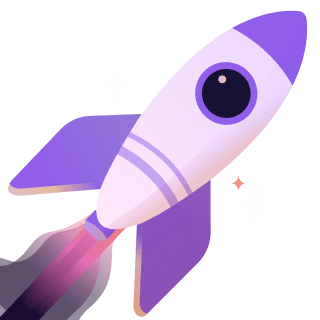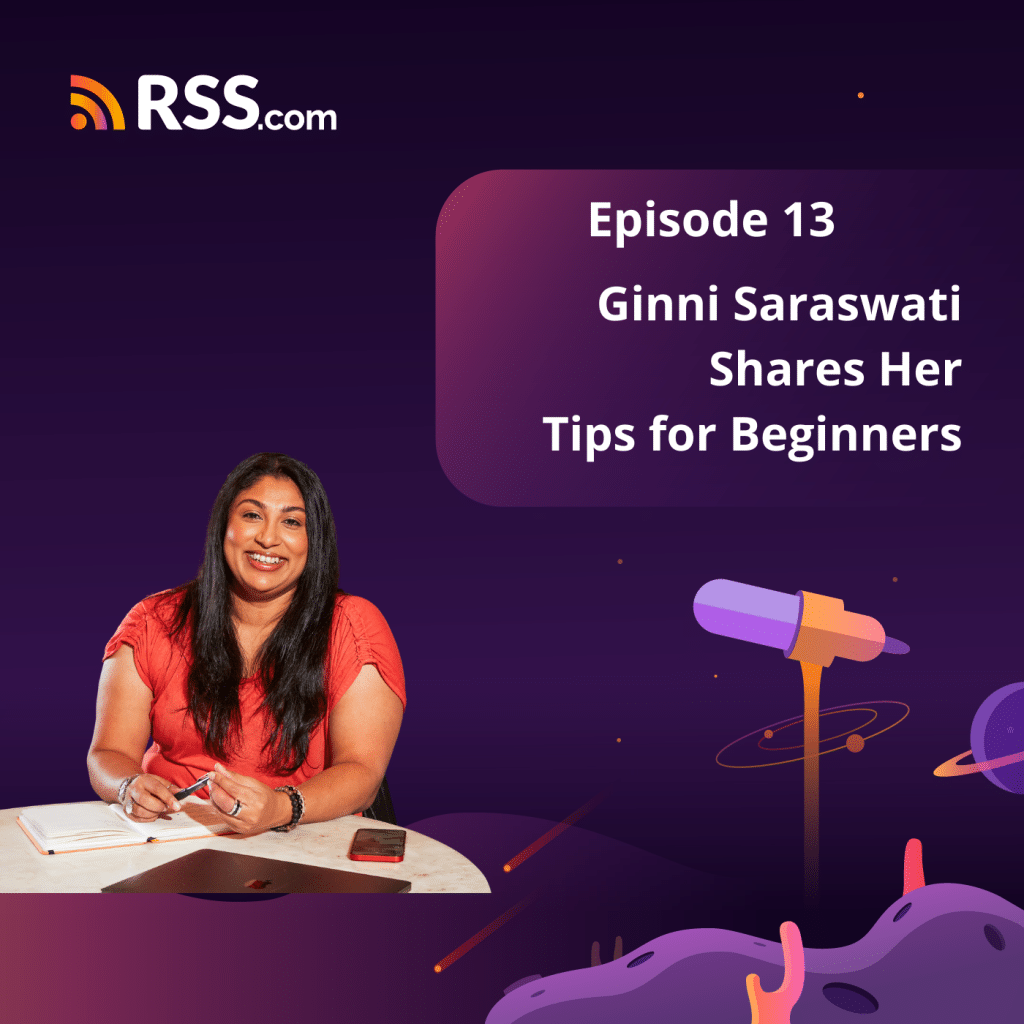



- Listen to Episode #13
- Watch Episode #13
- Transcript for Episode #11
In today’s episode we’re chatting with Ginni Saraswati – the owner and founder of Ginni Media, a one-stop-shop, podcasting production house providing multiple podcast services in one company. Ginni has brought podcasting to the masses with The Podcast Accelerator, helping individuals and businesses spread their voice and make an impact.
Ginni has been featured in a number of publications including Rolling Stone Magazine, Business Insider, and Reader’s Digest. She’s also a contributing writer for Forbes, Entrepreneur, podcast host for The Ginni Show, and an award-winning journalist.
Meet Ginni Saraswati
Ashley 0:15
Hey everyone! Ashley here with RSS.com. Today we’re bringing you Ginni Saraswati, podcast coach and creator of The Podcast Accelerator. We’ll be talking about mindset, motivation, and so much more. Enjoy the show.
Ashley 0:28
Well, Ginni, welcome to the show. I’m so glad you could be here. Could you do us a little bit of a favor and tell us who you are and what you do?
Ginni 0:34
Sure.
Ginni 0:35
So my name is Ginni Saraswati. Ginni, like the drink gin, not Genie or Jenny, or all the other names that I get over here. So I am the CEO and founder of Ginni Media. I’m a serial entrepreneur, perpetual student, lover of podcasts, coffee, and all things edible and brunch related. So that’s me in a nutshell there actually.
Ginni’s Podcasting Journey Began in Radio
Ashley 0:57
I love that. That’s awesome. So tell me a little bit about your podcasting journey. Like how you got started, how you came to be where you are today and all that good stuff.
Ginni 1:06
Sure. So I became a podcaster as a consequence, really, and I know that not many people say that like. How did you punish yourself to be a podcaster? Well, I think when podcasting started early on, when, you know, Apple made the iPod and you know, that’s why podcast exists as a name as it does, right podcast – iPod and broadcast. As a consequence of being a radio host.
Ginni 1:28
With a lot of – the way a few podcasts came out originally, I know, there was an original podcast. But, a lot of podcasts in Australia, typically, if you were a FM radio show host, if you hosted a morning show, which I did for 10 years on and off. Any kind of celebrity interview that you did, or like a quick segment that was really like hypey or like it had a Pop Culture segment – what the radio stations would do is they would pull that interview out, they’d cut it, and they’d pop it on to iTunes. And it became a podcast. So my original pathway to a podcaster actually was out of consequence. And then after I left radio, it was intentional.
Ginni 2:04
I’m like, okay, well, what can I do now? I have, I didn’t notice a very significant shift with how audio was being consumed. Right. So radio gave us this sense of intimacy where you could be in a car, and on your commute. You hear the weather updates, the news updates, you listen to music, you listen to people. But you always, in most cases, you would listen to the radio alone. That’s the intimate space audio has. But I noticed the restriction of okay, I’ve got to tune into this personality between this time that’s the only way I can hear that. That opened up when podcasts came out. Like if you had a celebrity interview in Australia, and you’re a big fan of say Paula Abdul, like, oh, I want to listen to pull up those interviews in Australia. But it’s 3am. And I don’t know how much I love Paula Abdul to be able to get up at that time to listen to it. But you can catch it in your own time. So podcasting opened up this whole audio autonomy. Anyway, that’s just my excitement coming out about audio. But that’s how I became a podcaster out of consequence and intentionality.
Ashley 2:04
I’m kind of glad you mentioned Paula Abdul because I, you know, child of the 90s. One of the very first talent shows I ever did was to Paula Abdul’s Forever Your Girl. Little little fun fact. That just brought me right back to when I was 10 years old dancing on stage by myself because, my dance partner was like scared. And so she dropped out. And so at the end of it just me on the stage, and so it was to Paula Abdul. Too funny. I was obsessed with her and Janet Jackson. Right, right, right.
Ginni 3:34
A bit of a “Rush Rush” there.
Ashley 3:36
Yeah!
Ginni 3:36
I’d better be careful here. I mean, I’ll stop now. It’s gonna be terrible.
Ashley 3:42
Well, I mentioned Janet Jackson. So I’m gonna take back “Control.”
Ashley 3:49
So I’m curious, in your opinion, why is it imperative to start a podcast if you want to stand out as a leader?
Why You Need a Podcast to Stand Out as a Leader
Ginni 3:55
I think podcasting is – it’s one of those things where I think when it came out, originally, people didn’t take it seriously for the fact that what I said. A lot of the podcasts that were put it being put out originally like, Okay, this is just repurpose radio. But I think what people didn’t quite comprehend was okay, yes, it started off as repurpose radio, let’s just say. And then it evolved into all sorts of things like audio entertainment, like audio universities, like audio. Like the branches of podcasting just, you know, grew and grew.
Ginni 4:29
And I think if you are a leader in your space, having a podcast is kind of like it – They’re calling podcasts like having a book. It’s the equivalent of having or publishing a book. However, podcasting allows you to create content and connect with people, it’s like the new coffee, right? And people are so busy nowadays, right? When you’re like, “Hey, can I get 30 minutes of your time for a cup of coffee?” People don’t have that kind of time anymore. 30 minutes is a lot to ask of people. It’s even a lot sometimes to even ask him your podcast audience right. Like, do you want to listen to me for 30 minutes?
Ginni 4:59
They’re like, No I want to in nine, it’s like what? But as a leader putting out that content in podcasting, you’re actually given an opportunity to create, as I mentioned before, that intimate connection. Because attention spans are shortening. I think the recent study Microsoft did was like 10 seconds that we have – that’s like nearly a goldfish, when you think about it that way. Like, we have goldfish attention spans. That’s a lot like we are all becoming Dory. I mean, I love Dory.
Ginni 4:59
But like, you know, that attention that we have is Dory like. That’s quite scary. But if you can reverse engineer that. If you can look at the flip side of it – the intimacy – that connection that you have – will keep people coming back. It’ll allow you an opportunity to build trust. You can build a platform to be a pioneer in that space. So as a leader, podcasting really is a platform for you to leverage your leadership, your expertise, your knowledge, and to really cast a net out to your potential customer. So there’s so many opportunities out here to go into data and stats if you want. But that’s why I think every leader should have a podcast.
Ashley 6:03
It’s so true. I definitely agree with that. And you know, one of the things you said was that we have shorter and shorter attention spans. And that’s honestly one of the reasons why we’re starting to experiment a little bit with what we’re calling quick hit episodes, where we’re taking the episodes that we have that are your standard 30 to 45 minutes, and we’re chopping them up into little three to five minute bites. And it’s not exactly like TikTok style, because you know, I know that TikTok, you can well – Actually, I did hear that they started beta testing, like longer than five minutes now. But the idea that if you want to just come in and just get a quick nugget, a quick hit of something that you’re trying to learn – It’s a great way to have that intimate moment with your audience where you’re just like taking those longer episodes and making it short so that they can get what they came for, and then move on about their day.
Ginni 6:49
Exactly, exactly. And I think that’s a great, great way of putting it too. Because I think it’s a part of that attention span, I feel it is – what’s the word – a result of the pandemic. I think we were in that time. We were locked in a space physically and information just pumped at us and everything was going up everywhere. I think that is kind of an aftermath of that. I don’t know if that’s going to shift the focus. And mindfulness is going to kind of come back to the forefront and be like, “Hey, we’re highly distracted. How can we focus?” But to your point, platforms are testing that out, I think, because they are preparing for that to come about soon.
Ashley 7:23
Well, and then you still have the longer episodes if you choose to use them. But it’s just the fact that you have options. And I think that’s one of the big things is it’s just giving people options. So hey, if you’ve only got five minutes, and you’re like doing a load of laundry, or whatever, here’s this quick hit. But if you’re going for a walk, or maybe you know, a run or whatever, you can get a longer episode and just have that more intimate time with someone. So with your own podcast, you do still have your own podcast, right?
Ginni 7:52
Correct. I do.
Ashley 7:56
I was just gonna say so what is it about? And how did you decide
How to Decide on a Podcast Topic
Ginni 8:03
Sure. So that’s also another interesting question there Ashley. Because when I started my podcast, obviously, when you have a background in radio, typically, especially a morning show, there’s new segments, traffic, weather updates, the breaking news, your conscience, kind of more or less shaped for you, right? You walk in, you’re like, this is what you told Matt today, this is what’s happening and you pave your personality or weave it into those bits, right. But a podcast kind of gave me full autonomy to be like, what do I really want to talk about? I had no idea. Thank you. Yeah, we didn’t have like, I have no idea. I called it The Ginni Show.
Ginni 8:36
Because I’m like, this is kind of me reclaiming myself outside of radio, but also kind of about including radio in it some in some ways. But The Ginni Show started off as a podcast that was kind of like an audio storytelling documentary of my life growing up in Australia as an immigrant kid. Raised by a very loving, devoted mother and, and growing up in Australia as a gay immigrant kid. So that was kind of like a narrative of growing up and what I learned. So it’s like wisdom drops meets like audio narrative comedy.
Ginni 9:09
So that was what started off as. And then as I moved to New York, it evolved into a lifestyle type show where I did more interviews, and it was about personal growth. But now we’re kind of rebranding, and at the moment because of what’s happened in the last three years for humanity, and a lot has happened for me. And I’ve thought to myself, alright, this new season’s gonna be something different. It’s going to be about how we’re all curious spirits, and how we can grow and evolve with travel, adventure, whatever is there. But, it’s really a show about growth told through travel storytelling in places. So that’s what the show is about. And we got a new season coming out in May. So I’m very excited about that.
Ashley 9:50
I actually love that. I really do. I was just reading the Podcast Pontifications by Evo Terra, and he was talking about how you know the podcaster he was when he started is definitely not the same person today. When you look in the mirror and you’re like, who am I as a podcaster? It definitely evolves and it changes. And so I love the fact that you said you’re starting a new season because even though it’s yes, it’s a new season of your podcast, I think it’s really cool that with something as diverse as podcasting, there are seasons of life to it. And so there can be seasons of life to your actual podcast as well.
Ashley 10:24
And I just think that’s really awesome. And I’m definitely gonna check out your show.
Ginni 10:28
Thank you.
Ashley 10:29
I’m curious. Whenever you began podcasting, you already had, you know, like you said, the background and radio, but what was it that you had to get? Or like, what kind of equipment did you need? Whenever you first transitioned from radio to I’m going to be basically broadcasting from my home? What kind of things did you think you needed to get started?
How Ginni Started Her Home Podcast Studio
Ginni 10:49
Well, I was kind of confused actually. Because again, when you walk into Morning Show radio, it’s like the microphones are set up, the panel board’s there. Sometimes I would panel, but it was already set up. I didn’t have to plug in any wires or XLR cables anytime we did like live events or outside broadcasts. It was all set up by the engineering and tech team. I literally had to walk in, press buttons, and speak right. And I’m like, Okay, what is this sorcery? I don’t know what. When I Googled microphones back then.
Ginni 11:16
Obviously, we’ve come a long way with podcasting since 2016 – when I released my podcast six years ago. The funny thing was I started Googling some things and I’m like, okay, microphones for podcasting. I think there were a couple that came up. But they are different like – well, I ordered two microphones. One was the ATR 2020. And the other one was a Sennheiser microphone, but they were both XLR microphones. And I was looking – what I was actually looking for was a USB microphone. So I’m like, I ordered the wrong mic. But now obviously, we’ve come a long way since with educating, with my podcasts or microphone, was a big thing. For me, I think, as a radio presenter that was really drilled into my head – you need a good microphone. And then also have you soundproofed? Like, you know, when you’re in a studio, it’s already soundproofed for you in a way where the floor noise is minimized and everything like that.
Ginni 12:07
So, soundproofing and microphones, I feel are the two things that a lot of podcasters think about when – Or a lot of aspiring podcasters think about. At least for me, that was the case. And it was insane. But when I actually took the first step, and I bought it, I’m like, okay, this is pretty cool. I got it. And I had the privilege to work with a producer who did my air check, or my sound check or my demo reels when I was a radio host. And he’s like, buy this mic, and buy this mixer, you’re good. I’m like, okay, good. Then I was set up, and I’m like, alright, you know what, I don’t know what I’m doing. And he kept giving me tips. He’s like, maybe cover your head with a blanket. I’m like, “What is this? What is this sorcery?” I do not cover my head with blankets, but it works. So you kind of learn these things as you go along? Right?
Ashley 12:51
Well, I mean, luckily, these days, we have things like, you know, software. Like one of the pieces of software I’m obsessed with is Descript because, you know, it can take all the echo out.
Ginni 13:01
Exactly, exactly. Echo and you know, all that sort of background noise. And you know, if you have a production team too – if you’re lucky to have an audio editor or a sound engineer – and they can do what they can in post about that. They can reduce echo and, you know, whatever they can do to reduce the floor noise.
Ashley 13:14
Yeah, but I mean, the good thing is like, as the space continues to evolve, as this medium continues to grow, there’s more and more things that are coming out for the beginning podcaster. You can still take you know, even their phone and turn it into what sounds like a studio produced piece of audio. And it’s really awesome, watching just how much it’s grown just in the last couple of years. I mean, because I know that podcasting has been around significantly longer.
Ashley 13:39
But the fact that just since like the pandemic, like it’s, it’s just blown up. Like just watching it in the last two years has just been absolutely insane to me. So what would you say to a beginning podcaster today, if they’re about to launch right now, what do you think they need in place to get started with the show?
Advice for the Beginning Podcaster
Ginni 13:57
I think what they need is – I think people think they need a lot of things before they start. One thing I’ve noticed about humanity, Ashley, is that we are very quick to talk ourselves out of something that we want to do. So if you so you know, you know that whole mentality works, I’m gonna go to the gym tomorrow. And when you wake up, it’s tomorrow and you don’t go to the gym. Right? You’ve got to have yourself prepared with some statements to counter that.
Ginni 14:23
Right? Like I go through it every day I wake up I’m like, You’re I gotta go to the gym. And then my voice is like just sleep another 10 minutes. Text your trainer. He’s gonna kill you, but just text him. Yeah, I’m texting him. And I’ve seen the consequences. But you forget about that when you’re tired, right? So what I did was I kind of came up with a counter in my head. Like you always feel better, Ginni, when you go to the gym. And that’s true. And it always has proved to be true and kept me consistent.
Ginni 14:49
So you’re starting out with a podcast, really think about why you want to create one. All right, is there a topic that you’re so passionate about? To have those thoughts in your head, because that’s what’s going to propel you forward. All those thoughts about, “I can’t do this. Who am I to start a podcast? This is too hard.” That’s just another obstacle that you’re gonna have to jump over. That’s gonna tie you if you don’t have some positive tenacity powering you through, right.
Ginni 15:11
So really make that your focal point. And the other thing too, Google is like, okay. You can Google how to start a podcast and that sort of thing. Like Ginni Media, my company has all these guides about that, too. But Googling microphones can be quite overwhelming, because there’s 2 billion searches, right? So just, there’s a lot of resources out there online. Put some time into some research. Look for a decent podcasting mic. Because that’s really going to be the difference between a quality podcast, to a decent quality podcast. Like that’s the quality factor or the quality variable. And I think what I learned too, is sometimes doing things by yourself, if you’re that type of person who, you know, gets a gym membership for a year, but doesn’t really go to the gym. Chances are, you probably need what’s called an accountability person, to bring someone along with you on the journey that’s gonna keep you accountable.
Ginni 16:00
I’m that person, I will have a gym membership, and I won’t go. But if there’s someone there yelling at me threatening to beat me up, I will be there. So that’s the kind of person that I am. So apply those same mechanics or mentality to starting a podcast too. It sounds, it can sound really overwhelming. But these are the things that are actually going to keep you accountable to get to your goal. And this is also why I started my program with my co-founder Michelle Sorro, The Podcast Accelerator. Because there is an element of accountability that comes with launching a podcast, which is super helpful. And that gets you across the line. So just to summarize Ashley, what I said was your mindset is super important. And a microphone, the two M’s – M&M.
Ashley 16:00
I get that. And the reality is, you know, one of the things that held me back for so long is I was afraid of, like, I had the fear of failure. I had the fear of no one’s gonna listen to me. I had the fear of, you know, well, what if I say something stupid? And finally, one day, I was just like, you know, what if I just treat this like an experiment? Then if I mess it up, s what? Because the reality is, it doesn’t cost that much to buy your podcast hosting, it doesn’t cost that much to to purchase a decent microphone. Yes, you can go and spend, you know, five or 600 bucks on the fancy schmancy stuff or $1,000 on a soundboard or whatever. But I mean, I’m sitting here with a Blue Yeti microphone that I think was like $199. And but there’s cheaper ones even. There’s like $60 microphones that sound pretty decent. So it’s kind of one of those things where it’s like, if you’re afraid, just do it anyway. Do it scared. Because you first need to know do you even like this medium? So try it.
Ginni 17:39
Exactly.
Ashley 17:39
Because what if you find out you absolutely love it? And then you just become kind of addicted to talking?
Ginni 17:47
100% And like, and then you can’t shut up? Right? Yeah, like you just want to keep talking and talking and talking. And it’s fantastic. Because I think it’s a great space to be in when you fall in love with podcasting. It’s only gonna keep going and going and take you to different heights and opportunities.
Ashley 18:03
I completely agree. And I guess my question, though, is, so once you do actually get started. Once you get your M&M in place. So what are the things that you should keep in mind? If you want to create something that’s different and stands out from the sea of podcasters that are out there? Yeah.
How to Stand Out From Other Podcasters
Ginni 18:21
This is – It’s a great question Ashley. Because people like me don’t know what to talk about. Like, what could it possibly be? What could I possibly talk about that people would find interesting? Exactly what you said about what was stopping you? That is one of the main objections people have when they start a podcast. It’s like, what do I talk about? The technology? Then you know, how am I gonna make money off this thing? Is this going to be a worthwhile investment or my time? All these sorts of things kind of pop up.
Ginni 18:47
And I think once you have those ideas, you get your M&M – your mindset, your microphone. The other thing to think about is okay, you’re creating this podcast for now. There’s all sorts of things or exercises you can go through. What I find to be helpful is to be specific about your listener. And I say specificity. Some people go start broad, start whatever. I say specific, because I’m all about creating intention. If you’re intentional about what you do, everything kind of aligns when you go along that path. So think about who you’re speaking to. So I think about The Ginni Show, as I’m rebranding it, because I have evolved as a person. And the show has evolved into The Ginni Show is a podcast for dreamers, who are curious spirits. And they grow through travel and adventure. So there’s a mindset component to it. There’s a travel component to it. There’s an adventure component to it. So it started off with me saying, I want to do a podcast about travel, adventure and mindset.
Ginni 19:45
Who would listen to that? So the audience who would listen to travel, adventure and mindset are dreamers who are curious spirits who grow and evolve through travel adventure. So really be specific about who your audience is. And people might be like, but Ginni, that sounds really really broad. I’m like, well, not all dreamers want to travel and grow. Some dreamers just want to dream and perform on stage, right. So my audience is specific enough and broad enough to have the potential to grow. So that’s the other thing you want to think about. Because when you’re creating, you’re going to be very, very intentional about who you’re creating for. So and then you’re going to be very intentional about what you talk about. And actually, once you get into that mindset – again, bringing up that M word – the creation process becomes quite easy. And all those blocks that you put in between will be like, actually, a dreamer who is interested in travel would not want to know about spoons. I’m not gonna talk about spoons today.
Ashley 20:37
So how do you find your guests for your show?
How Ginni Finds Guests for Her Show
Ginni 20:39
Well, I typically like to follow people on social media. And I’m like, this person’s cool. They’ve got an interesting story. So typically, I follow people on social media. It’s people within my network, and people who have been referred to me. That’s typically how I find my guests. And I’ve been lucky. I’ve been doing this for a minute now. So you know, they’re like right, Ginni’s a legitimate person, she does have a podcast, she’s not this crazy Australian sitting in her office in New York, you know, yelling at people. Although, that can be a reality sometimes.
Ginni 21:09
So you know, that helps when you have that credibility there. But I think when I was starting, finding guests was easier for me, because again, I had that radio background. But I remember starting out in radio, I didn’t. It was like, literally, how do I find these guests that I want to record with? How do I find these people? And you start with your inner circle, really. Like start with your inner circle, get them on the show. I got my best friend at the time, or she’s still my best friend, to do a movie review. She’s like, I’m not a movie reviewer. I’m like, Yes, you are. Today, you’re gonna review the movies. You’re going to be my movie reviewer. So start with your inner circle, and they’ll share it and then eventually build it. They will come. Start with the inner circle of people that you know, and then ask them to suggest people. So that’s how I started to find guests.
Ashley 21:54
I want to rewind for a second because it just came up again. You said with radio, one of the things that was happening is that you had a structure. You knew how to weave your personality in between the new segments and the in the traffic segments. So how do you structure your episodes these days? How does that work for your podcast?
How Ginni Structures Her Shows
Ginni 22:13
That’s a great question. You’ve got great questions today Ashley. Like I’m gonna get like you on and get you to script my show out. So how do you structure your show? So when I first started in radio, and my podcast, I scripted everything. So when I first did my nighttime show, back then it was called I Spy. It was a music review show. I scripted the whole two hours. Now ultimately, when you get into a groove, that’s not sustainable, right. Like scripting to me took about three hours. And then the show was two hours. And it’s a lot of work. So a good framework to start with is like an arc for your podcast.
So for my podcast, The Ginni Show – how we’re planning it out is we’re going to speak to guests about three travel memories that they have. And we’re going to weave in this personal story about these memories of the people involved. And that’s how we’re starting it off as and that’s quite specific enough. And again, broad enough for the conversation to go, here, there, and everywhere within a certain parameter, right. So I think people kind of feel like they need this rigid script. Sometimes it’s a great safety net to start off with. And then you know, it’s kind of like having training wheels before you can ride the bike. If you want to be Phoebe – Phoebe from Friends – keep the training wheels on. But I suggest at some point, take those training wheels off and just have a very kind of solid but loose enough structure where you can actually allow a conversation to happen. Right?
Ashley 23:37
Oh, that’s good advice. Such good advice. And in fact, that’s kind of how I started. Whenever I first started my personal podcast, I definitely had the whole script. The whole thing I was supposed to read. And over time, it became okay, well, what are the three topics I really want to make sure that I say? And so like, even when you and I sat down to start this interview, I had this list of questions. But even still, based on the things that you’ve said, I was able to take what you’re saying and ask you another question.
Ashley 24:04
And I think that’s important because you need to be able to not be so rigid with what you’re trying to do that you miss out on a great opportunity to ask questions. Like, you never know what’s going to come out of the conversation. So if you focus too much on the script, you’re not going to get the opportunities to actually let the conversation evolve.
Ginni 24:24
Exactly. And the key to being a good conversationalist is listening. Which is the key to being a good podcaster. If you’re too rigid. you’re not leaving any space to listen, right? And have that organic flow of conversation to actually uncover.
Ashley 24:38
And to that end, I would say, be sitting down with a pad of paper and a pen.
Ginni 24:45
I see you girl. I see you writing.
Ashley 24:47
Well, and the reason why is because you know there’ll be something the guest will say, and then you know, the conversation moves on but it’s like, oh, but that was such a good golden nugget. What was it? Awe crud I can’t remember?
Ginni 25:00
It’s like a shiny diversion factor, right?
Ashley 25:02
I have shiny object syndrome, something awful girl. Let me tell you what. So, um, now would you consider your podcast successful?
Does Ginni See Her Podcast As Successful?
Ginni 25:11
It’s interesting. I would say no. And then people like, you built your company off the back of your podcast? Oh, yeah I did. I think with me, I set a standard for myself as a podcaster. And the standard has grown. As I’ve become a producer. The reason why I’ve taken such a long time to relaunch this fourth season of The Ginni Show, typically, I do the podcast every year. 2020 I stopped that during the pandemic, because the business as you said, podcast boom, so Ginni Media got crazy as well.
Ginni 25:40
And I launched a couple of other businesses as you do. Right in the pandemic, like, I’m just gonna get crazy. Then I’m like, do I really have the time and space to start a podcast? It would have been my intention to start it last year. I think I’m in that mindframe of, it’s not successful, because I’m not putting out what I teach my clients to do. So I think for me, it’s been a great vehicle for me to build my businesses off. It’s been a great relationship building vehicle for me. Now, I think about that, that’s pretty successful. Thank you, Ashley. Like you reminded me because that’s what I teach. Like, if you build a business off of it, if you build relationships off, okay, yeah. Thank you for that Ashley.
Ashley 26:19
You’re welcome. I’m reminding you how successful you are. So now, you’ve mentioned your clients a few times. So what would you say to your clients or even to a beginning podcaster? About how to not only get success, but then maintain it?
How to Get and Maintain Success in Podcasting
Ashley 12:22
That’s wild, like, wow. I mean, that’s something that you wouldn’t have even, like, considered a few years ago. But I’m curious, you said that thing about the billions of dollars coming into the medium. Do you think that that helps or hurts the independent little podcaster, who’s just starting out with just their microphone and a podcast host?
Chris 12:44
I think it helps because you have to realize podcasting for a long time had no monetization, and the reason why YouTube is whatever, seventy times bigger than the podcasting universe, is they allow creators to make a little bit of money and half the time, we’re not talking a lot of money, $18 here, $100 there. Podmatch has some monetization capabilities for people using their service. Obviously, the Spotify universe is adding, kind of following the YouTube model in some ways. To me, it helps the independent sometimes know that they’re on the right track if they get 50 or $100, and it reaffirms that they could multiply.
Chris 13:21
A friend of mine always said on the internet, it’s hard to multiply zeros, but you could always multiply one. So I think that’s a foundational shift. Are there going to be networks? Absolutely. Does that mean an independent might be able to join a network and get both benefits? Absolutely. So I think it’s good for the entire scene, and you know, independence is a loose term.
Chris 13:39
I mean, my wife has a meditation network. But she’s an independent. And there’s tons of people like her out there, there’s no need for them to join networks. But when and if the time comes for them to join, that money is going to flow through the podcasting ecosystem in many different ways. So it’s a win all around, I think.
The Naysayers and Celebrities
What Ginni Would Tell Podcasters to Motivate Them
Ginni 29:18
You’re full of great questions today Ashley. It’s motivation you know. I use that word interchangeably. Sometimes I feel motivation can be like a bad lover. Like motivation only shows up when like only during the good times, and it’s like, I’m gone when you really really need me. You feel the same. You’re chuckling.
Ashley 29:39
I’m trying not to do it on the microphone because I didn’t want to ruin your audio but my goodness, I’m rolling over here. That’s fantastic.
Ginni 29:45
But it is. It’s like that, that fairweathered love. It’s like yo I’m good at rooftop selfies, but I’m not going to come down and hang with you while you’re digging up trenches for your new place. Right. Motivation can be that bad guy, but think about like, what, again, I’m gonna go back to a J word. So M, M, and J – joy, what really does give you that joy? Right? So I think that for me accountability partners, sometimes can’t be the most joyful. I know my personal trainers, I wouldn’t exactly describe them as joyful. People that bring me a lot of joy, they bring me a lot of pain.
Ginni 30:19
But ultimately, they are pushing me to my goal, which is what is every day when I’m, you know, when I’m full of energy – that’s bringing me joy. So really think about, you know, again, why you’re doing this. Because sometimes it could be, hey, I’m gonna connect with really cool people. That’s a great place to start, right? I’m going to connect with new people. I want to expand my network. So start with that joy, what brings you joy. So I know, motivation – I did put in there and I use that interchangeably. But joy is probably a more trustworthy friend to have in your life. Joy will be there. And if Joy doesn’t want to be there, Joy won’t be there. And I’ll be very clear why
Ashley 30:59
I’m having a Marie Kondo moment, if it doesn’t spark joy, let it go.
Ginni 31:04
100% 100%.
Ashley 31:07
Now, so you’ve mentioned your clients a couple of times, and you’ve mentioned that you started a business based on your podcast. So what is it exactly that you do to monetize your show? And how did you build a business off of your podcasts? What does that mean for you?
How Ginni Built Her Business Off the Podcast
Ginni 31:21
Sure. So when I started The Ginni Show, I was like, Oh, how can I monetize this thing? I wasn’t sure. Again, I started because I just wanted to get on the mic and have a joke here and there, and talk to really cool people. And then that was what brought me joy. What I didn’t anticipate is how I was going to build a business off of this. It kind of happened organically.
Ginni 31:40
So when I started in podcasting in Australia – at that time I released a podcast, it wasn’t as booming as it is now. It was relatively new. And again, as I said, it was still like a lot of FM radio shows repurposing radio. So when I started The Ginni Show, it got nominated for a couple of awards. One was the Australian Podcast Awards, and one was the Australian LGBTI awards, got nominated, which was great. And I had a lot of people come up to me going, “Hey, you started a podcast? Can you show me how you do what you do?” And then it hit me. I’m like, actually, that’s a really good point. Because when I started, I’m grateful I had my audio engineer because he could edit things for me, right? And he could give me tips on how to make my sound better.
Ginni 32:20
So I learned a lot from him. But then the other thing I was thinking about is, what if someone could actually post my episode for me? What if they could write my show notes for me? What if they could create artwork to promote the podcast? And I saw an opportunity to hear like, hang on, people actually need this podcast and actually need this, like I knew for me, it was great to kind of just be in that creative space. I just want to go on, like what I said, Do you have all the ticks set up for me and have things be recorded? So I’m like, oh, there’s an opportunity here. So again, accidentally, I started a new media. So in that year and a half, I got five clients.
Ginni 32:54
So it was a side hustle for me as I was doing the podcast, working my day job. And then I got five clients. In that time, I’d fallen in love with the New York area. And I’m like, I’m gonna move to New York. So I moved to New York in 2018 with five clients. Now we’ve launched over 200 or 300 podcasts as a company. Wow. And yeah, so again, it was all accidental. But there was definitely a need for that kind of production support. So that’s how I monetize off having the genie show. And the genie show also in Australia got picked up by a network called Nova. And then I got advertising revenue as a way to monetize from there at the moment. I don’t know what I’m going to do with The Ginni Show and how it’s going to monetize. But I know that if I continue to put in joy, that’ll figure itself out, somehow.
Ashley 33:39
So it sounds like for monetization, for what people always ask about is you’re indirectly monetized because you’re not necessarily like buying sponsored or getting sponsored ads or anything like that. Instead, you’re using it as a platform to kind of kickstart other stuff.
Ginni 33:57
Yeah, 100%. That’s exactly what it is actually. It kick started other stuff, and allowed me to keep being in my craft learning. Because I said, I’m like a perpetual student, I’m still continuing to learn, and it allows me to share and keep learning as well.
Ashley 34:13
Well, speaking of learning, you definitely are also teaching what you’re learning. Tell me a little bit about your program. Isn’t it called something like the podcast accelerator?
The Podcast Accelerator Program
Ginni 34:24
The Podcast Accelerator, and it’s called an accelerator for a reason. It is an eight week program which I co founded with Michelle Sorro. Michelle and I talked about mindset and microphones. So Michelle added the M&M in this particular scenario, she’s very much the mindset so she is a transformational coach. So her job is to kind of get you in the love seat and talk you through your blockages and your barriers. I’m more like the microphone, aka the tech.
Ginni 34:50
So I will wear the producer hat and also bring some creative expertise. So what I’ve seen working with podcasts could be beneficial to said person’s talent skills. So that’s where I come into it. So it’s an eight week program – the only program of its kind on the planet because we actually do everything for you. So it’s not one of those online courses that you sign up to, and you’re left to your own devices. Over those eight weeks, we cover eight different steps to launch your podcast, we hold you accountable. That’s why we’ve had – I think we’ve launched 128 [podcasts] and we have a 95% completion rate.
Ashley 35:25
Whoa, that’s incredible.
Ginni 35:28
We hold you accountable. We’re like, “You gotta get your artwork in. Otherwise, we can’t get your cover out. You gotta get your episode audio in, otherwise, we can’t edit it.” We get everybody on the apps on the same day. So it’s an eight week program, and we get you live. And it’s an accelerator for a reason. Like, we get there. People have all sorts of tech questions like, I didn’t have to plug my microphone in. But they’re always at the finish line. They get their podcast at 6am, that particular date. So it’s a great program, because you really see how people transform. And then two years later, what they create is just phenomenal to witness.
Ashley 36:01
So it sounds like unlike, you know, many of the podcast programs that are out there, teaching you how to be a podcaster – you don’t just teach them you actually hold their hand and do it with them.
Ginni 36:14
100% I’m amazed. It’s the only done for you program on the planet. And it’s crazy. Like when Michelle came to me with the idea, I’m like, this is crazy. I’m totally in. Because, like, you know, it’s not like who would think okay, we’re gonna take a huge group of students. I think at one stage, we had 40 people do the program, and we’re going to edit 40 podcasts in a week. We’re going to do their show notes, do their outlet, pop them out on one day, my team’s like, “You’re crazy.” But now they’re used to my crazy. So like, okay, it’s just funny. And now if I give them 40 podcasters they’re like, “Just 40? What else do you got for me?” So it’s just one of those things that I think that it’s totally crazy. But it’s so powerful because it keeps you so accountable. And it takes a lot of the high tech stuff for you too.
Ashley 36:14
Well, goodness. With that many podcasts. It sounds like you definitely have some systems and processes that you work and I bet you cover all of these in your accelerator.
Ginni 37:08
Yep, we do. We do. With Ginni Media – like when I tell my team, “Hey, we are doing a round of Podcast Accelerator,” or we call it the PA. It’s happening. We’re like, we’re just going to trust the process. So we make sure that we’re very clear about what we can deliver. Even though sometimes it may be overwhelming. It’s everybody that we’ve always had. 100% guarantee. We do get your podcast out that day.
Ashley 37:30
That’s amazing. So I mean, we’ve covered a lot here today. And it sounds like a lot of the things that we’ve covered are things that people need to know. Where can people find you online?
Where to Find Ginni Online
Ginni 37:40
They can find me at ginnimedia.com So ginni like the drink gin and n and i media.com And I’m available on Instagram at The Ginni Show. So please do holla. I would love to speak to you. And I’d love to answer any questions that you have about M&M, or motivation.
Ashley 37:55
I want some chocolate now. But I’ll definitely leave all of the links down in the show notes below. And Ginni, I just gotta tell you, you opened my eyes to a lot of interesting things. And I can’t wait to check out more about your Podcast Accelerator. And I just want to thank you for taking the time today to chat with me.
Ginni 38:14
Thank you for the joyful experience. You ask wonderful questions. So thanks for being a good listener.
Website: https://thepodcastaccelerator.com/
Website: https://www.ginnimedia.com/
Podcast: The Ginni Show
Facebook: https://www.facebook.com/thepodcastaccelerator/
Instagram: https://www.instagram.com/thepodcastaccelerator/
More Podcasting 101 Episodes
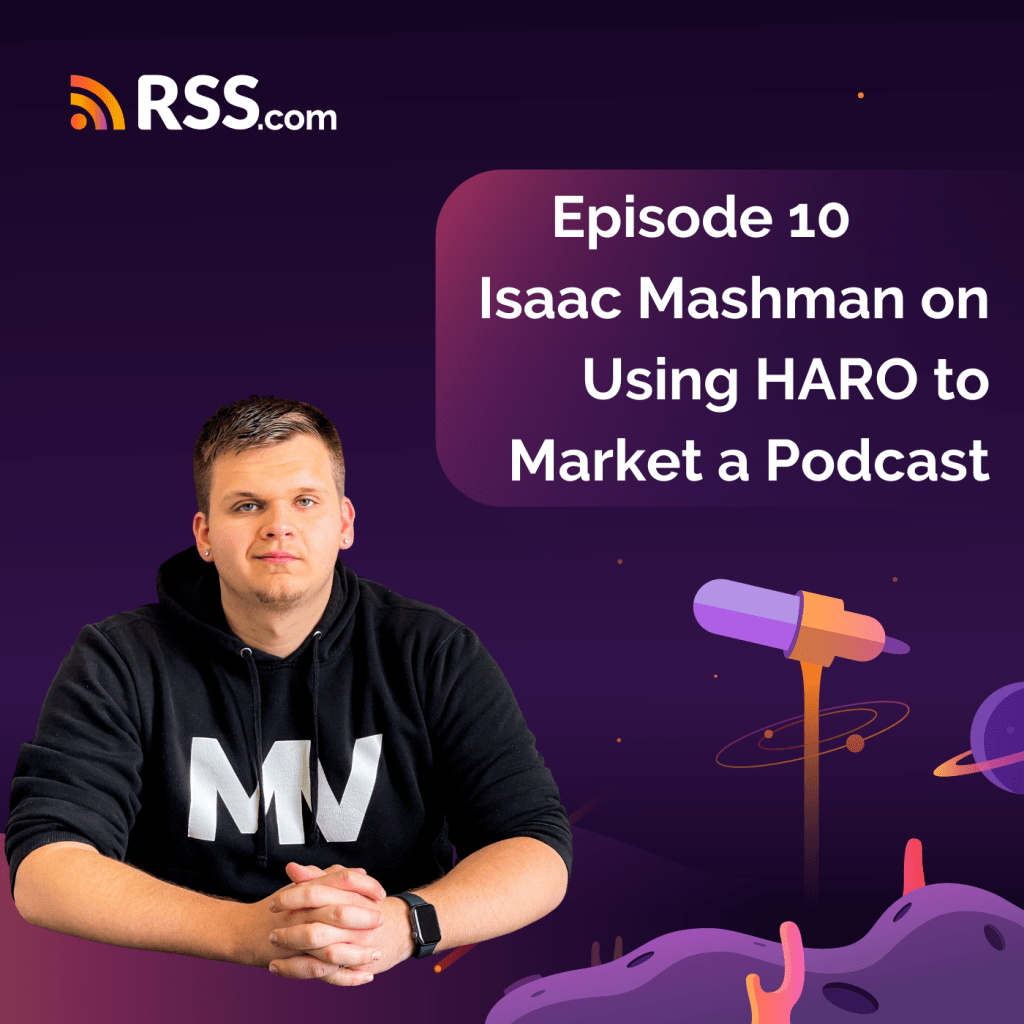
In this episode, Isaac Mashman of Mashman Ventures teaches us how to use HARO to market a podcast and grow your audience.

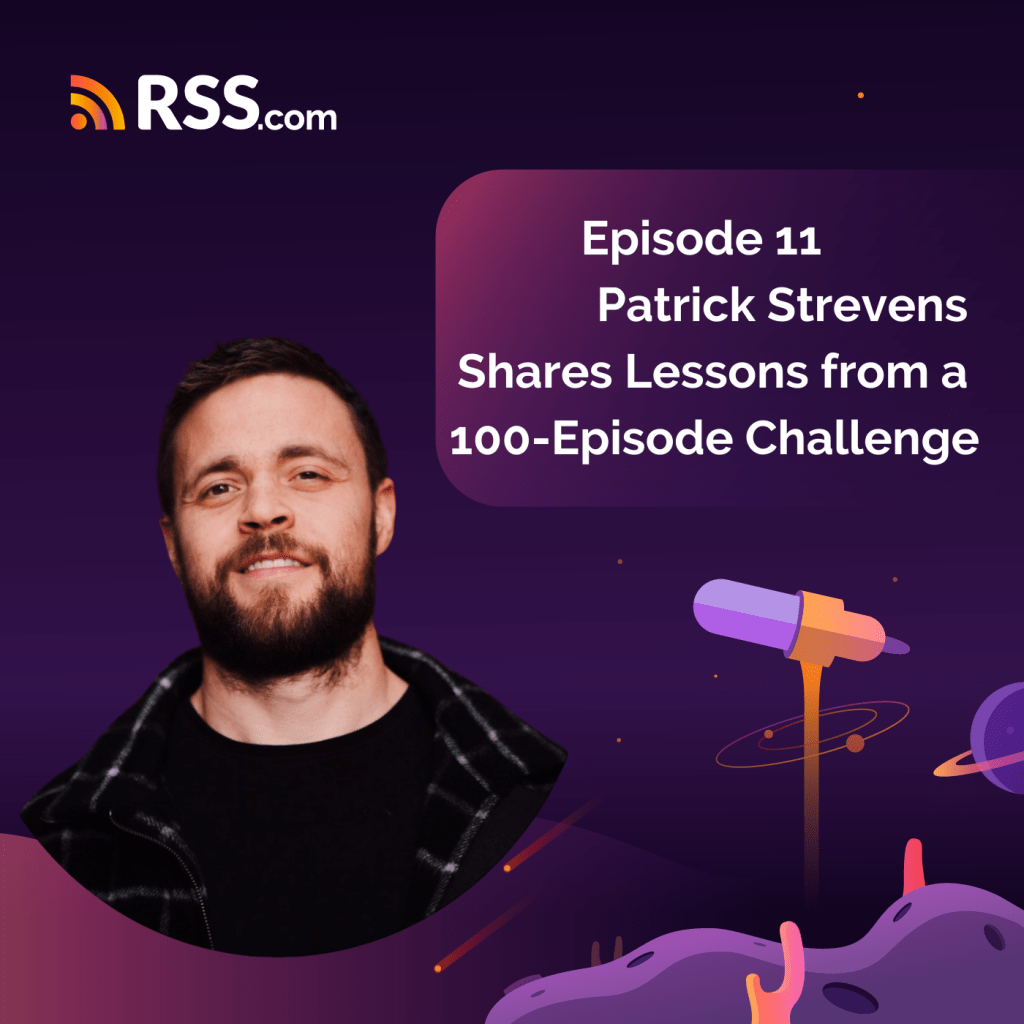
Patrick Strevens committed to 100 podcast episodes in a single calendar year. Learn about the lessons he learned along the way!
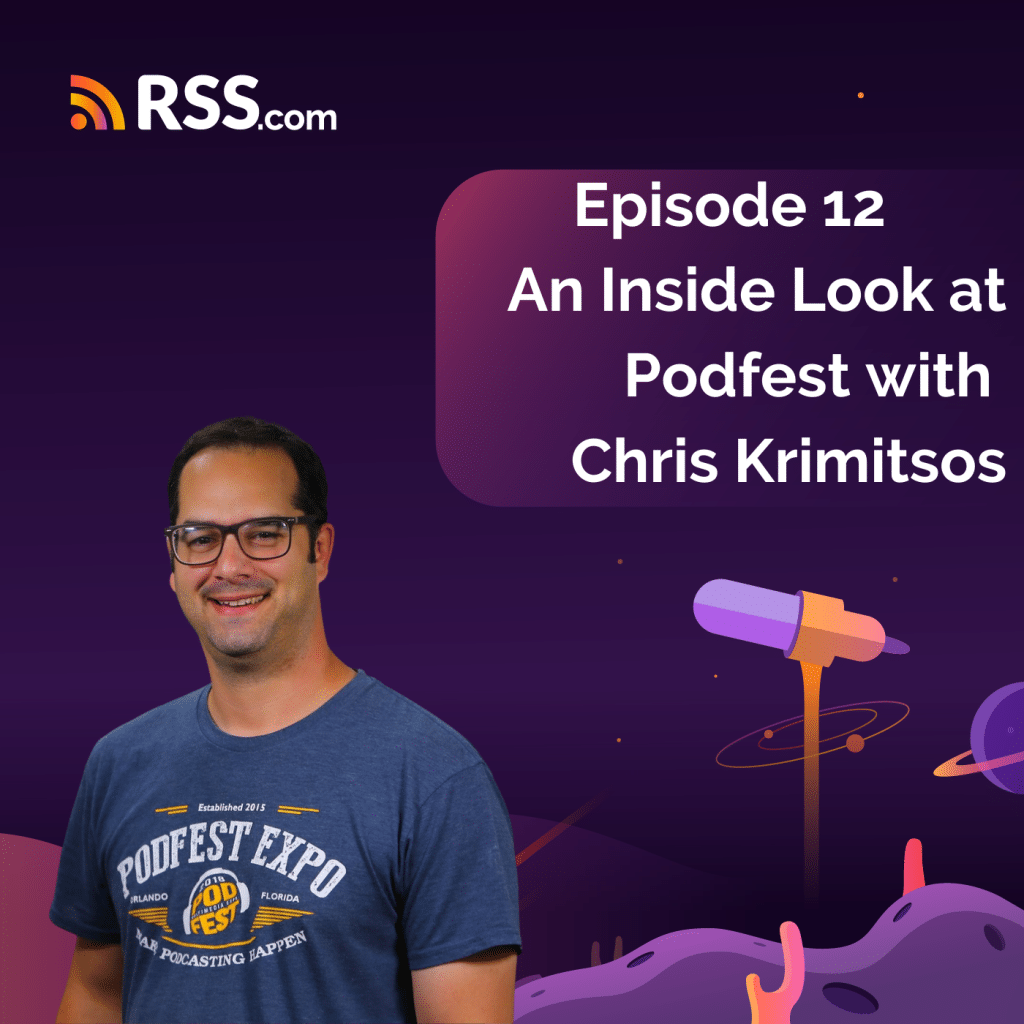
Podfest’s Chris Krimitsos gives us the behind the scenes scoop on how the conference came to be and what the future holds.

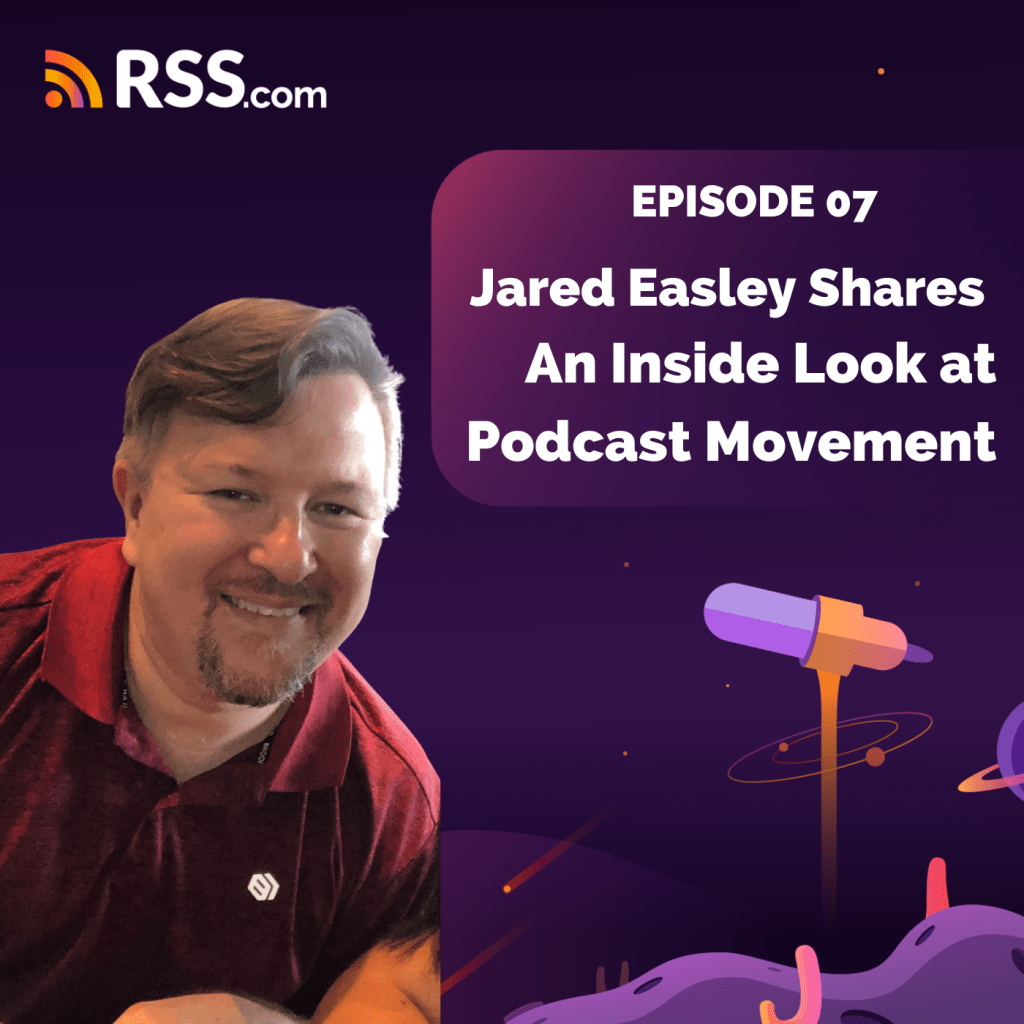
In this episode, we speak with Jared Easley, the co-founder of Podcast Movement on all the things about the conference, community, and more!

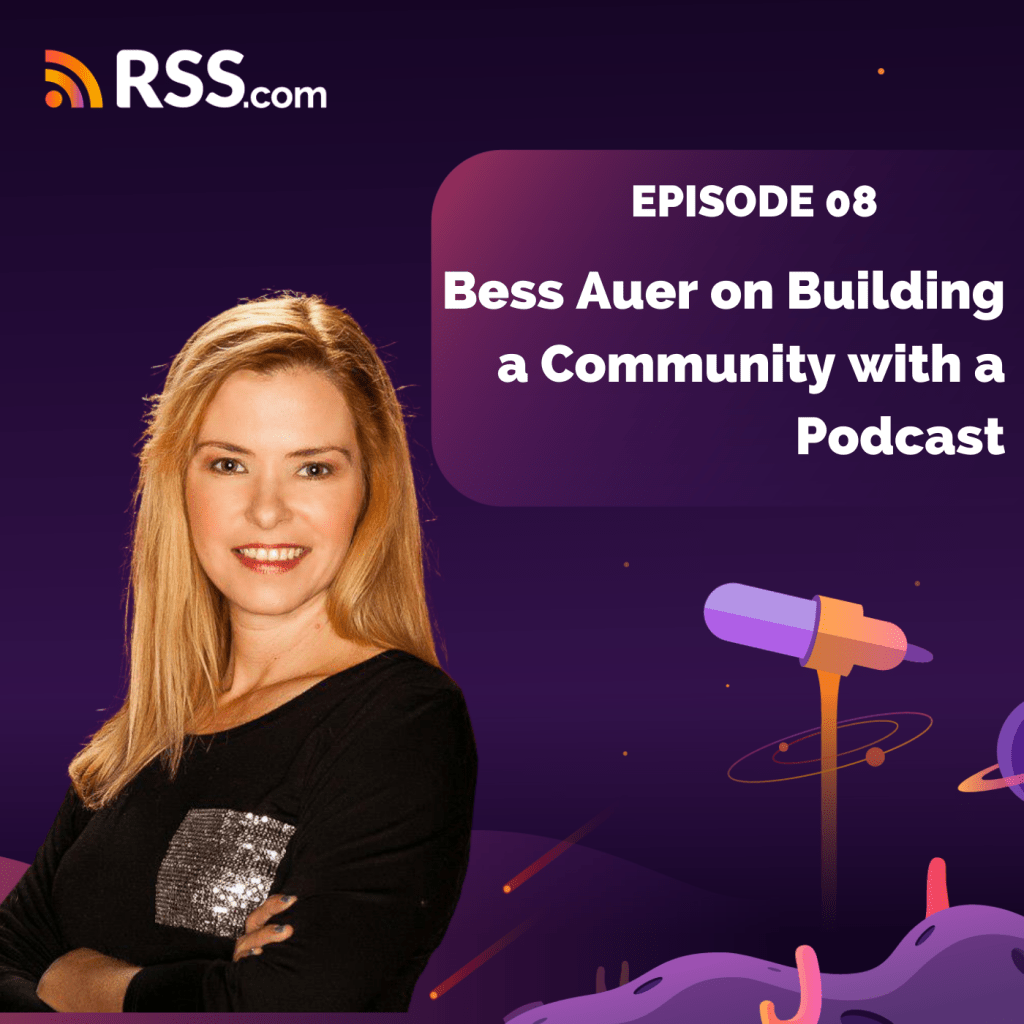
In this episode, Bess Auer, the founder of Florida Blogger & Social Media Conference talks about why communities are so important for podcasters.

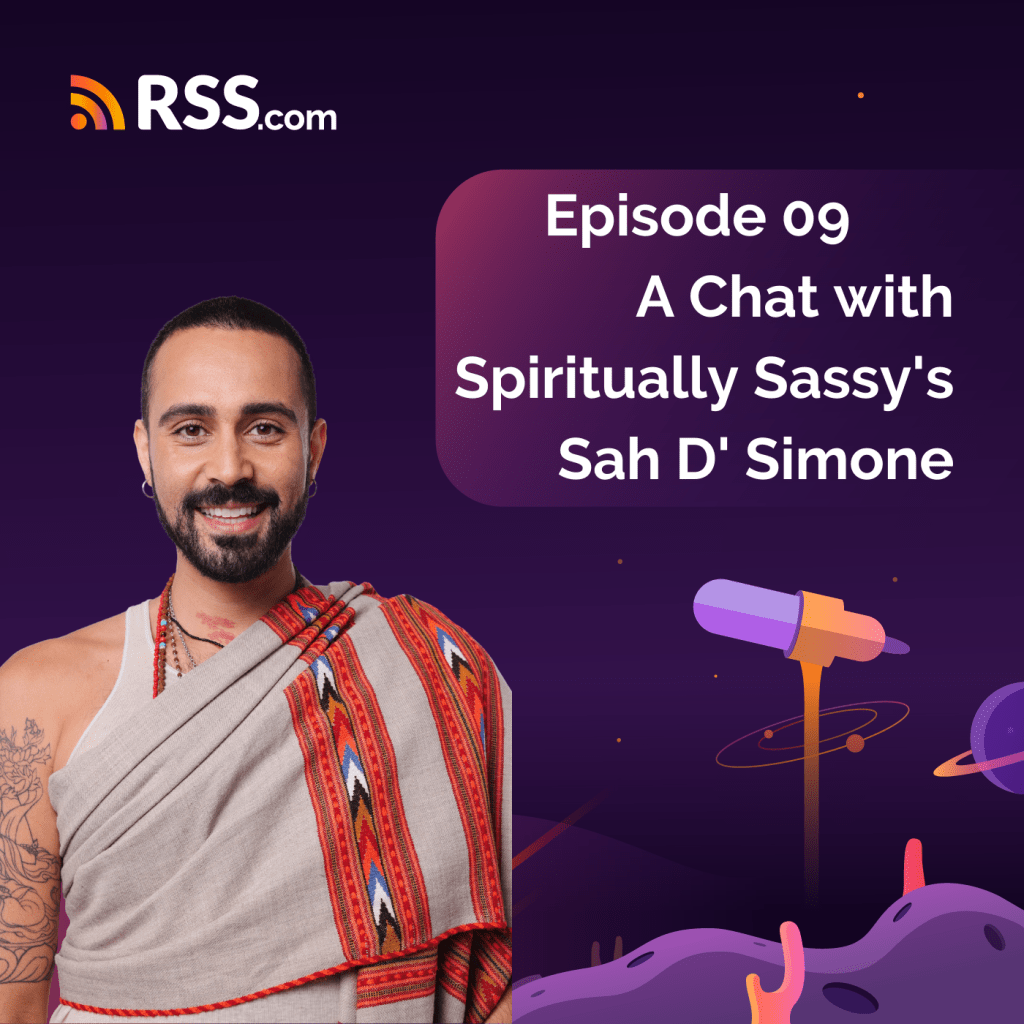
In this episode, Sah D’ Simone discusses his heart based healing movement in which joy and authenticity, eliminate the path to enlightenment.

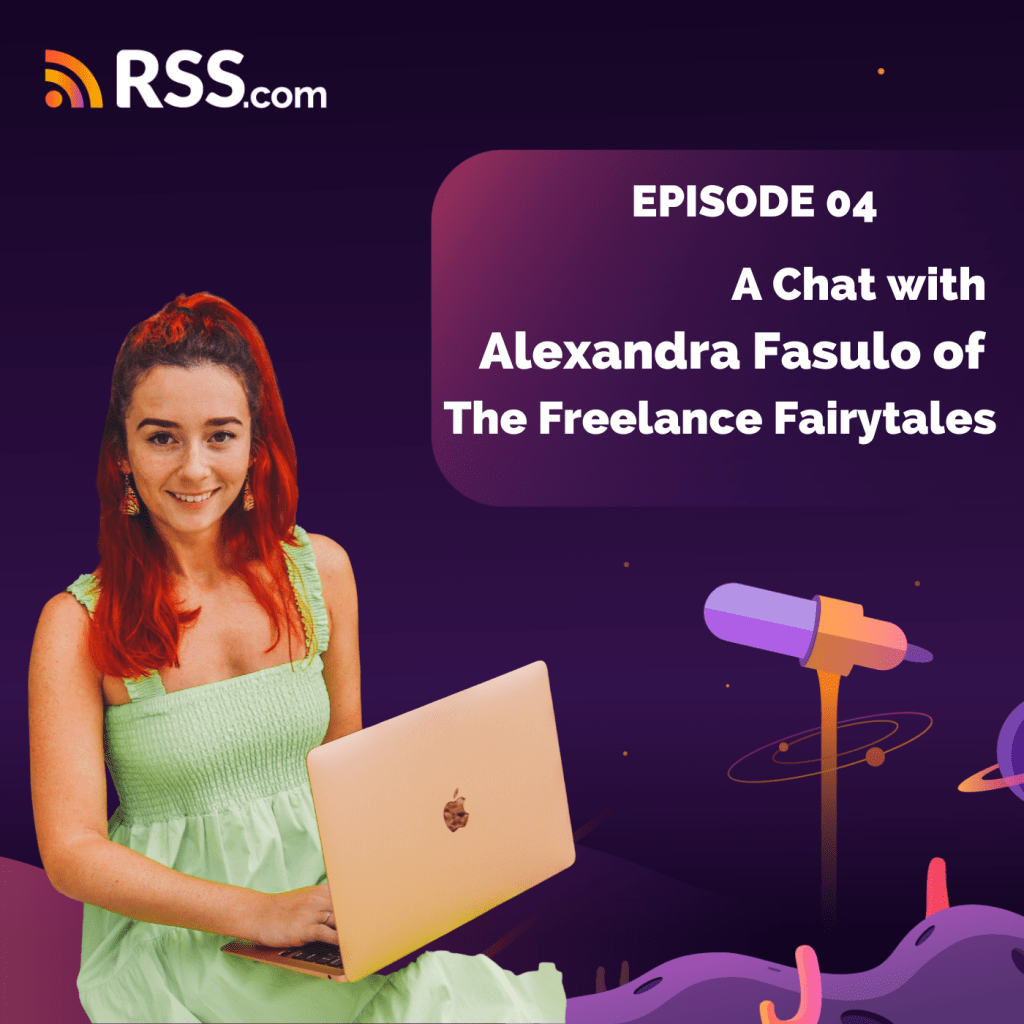
In this episode, Alexandra Fasulo of The Freelance Fairytales talks about how she got started in podcasting and how you can too

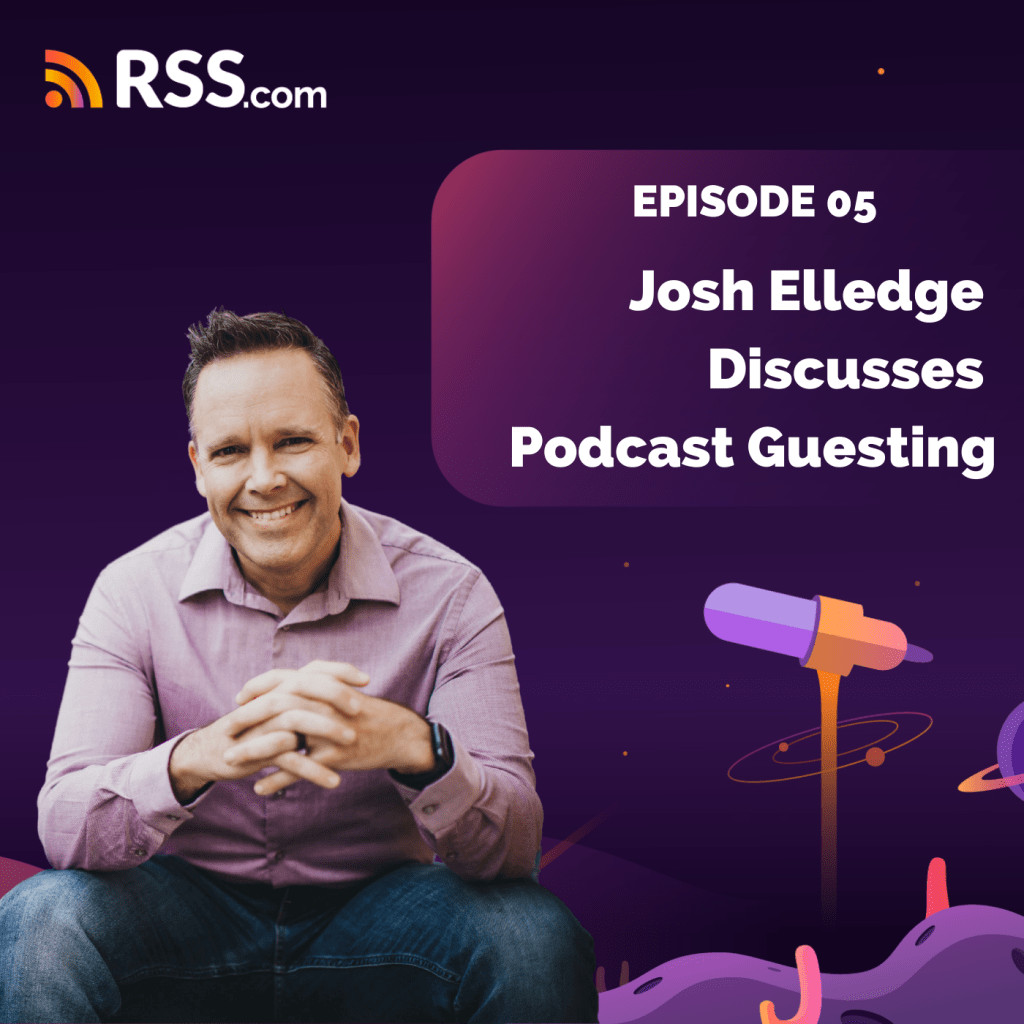
In this episode, Josh Elledge, the CEO of UpMyInfluence discusses how to leverage podcast guest appearances to build your brand and business.

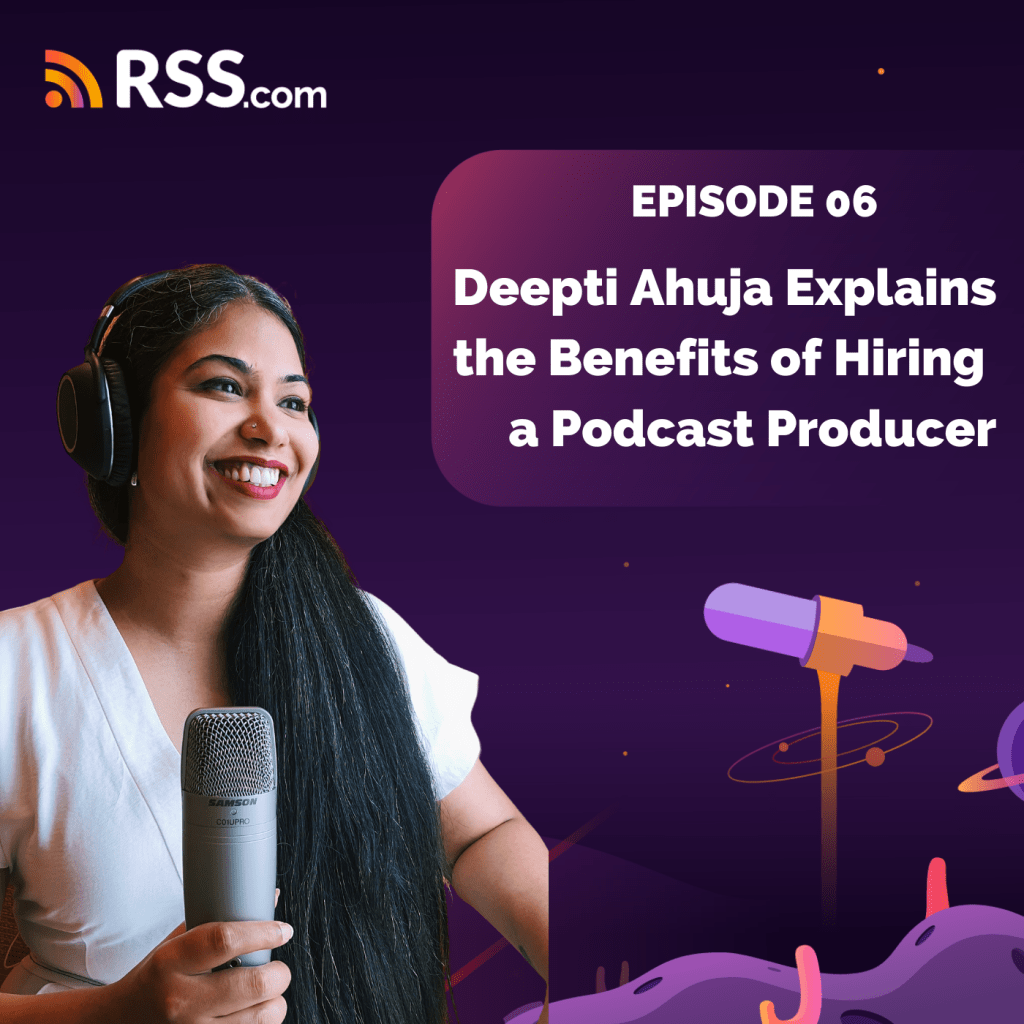
In this episode, Deepti Ahuja with HTSmartCast discusses the advantages of hiring a podcast producer to create high-quality content.

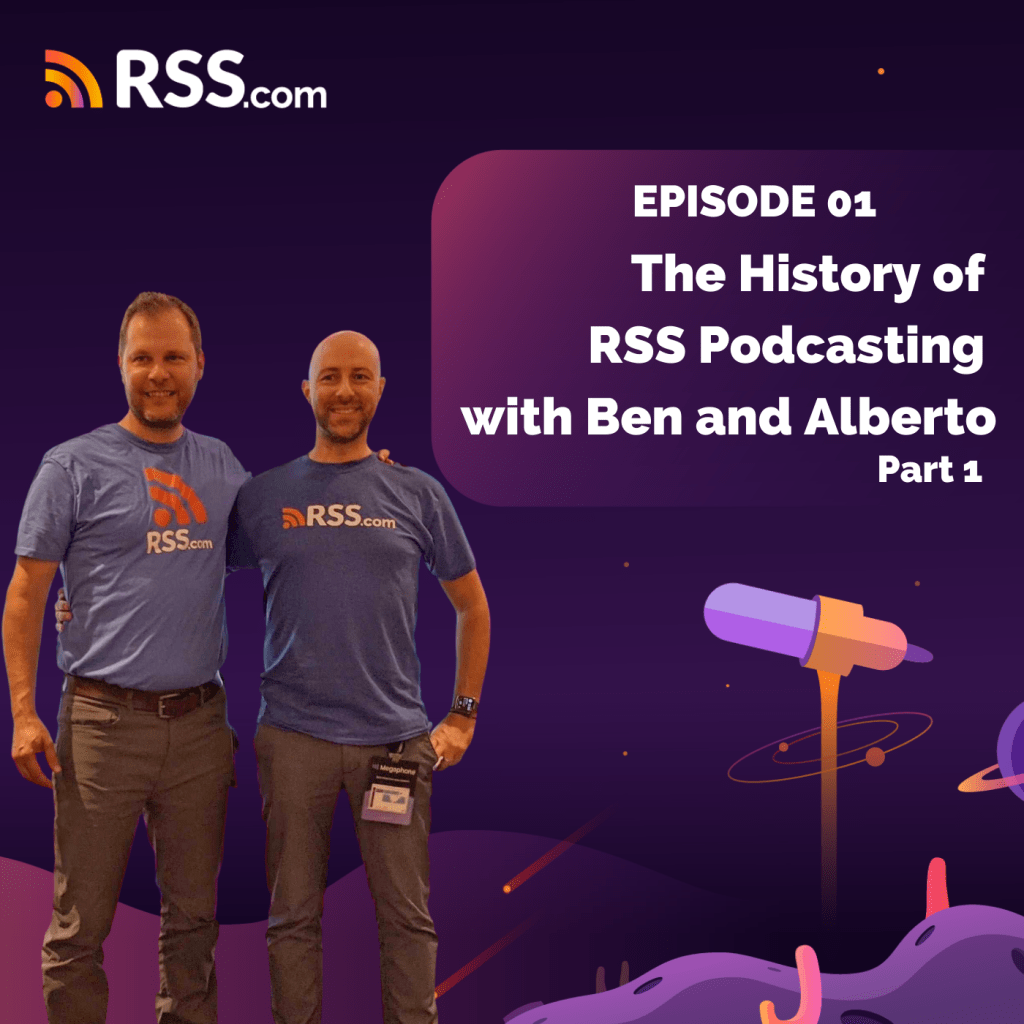
In this episode, the founders of RSS.com, Ben Richardson and Alberto Betella share their journey of building RSS.com.

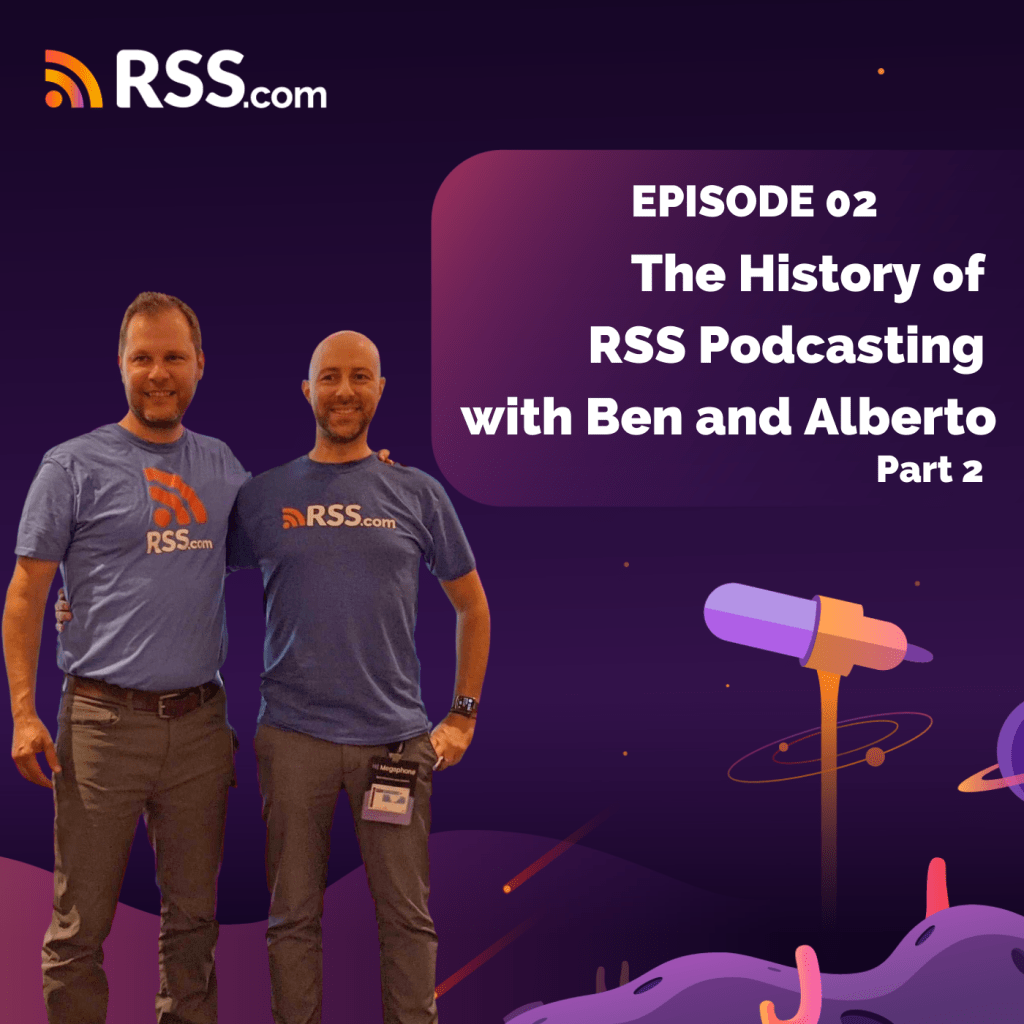
In part two of the History of RSS.com, Ben Richardson and Alberto Betella talk about why you should start podcasting.

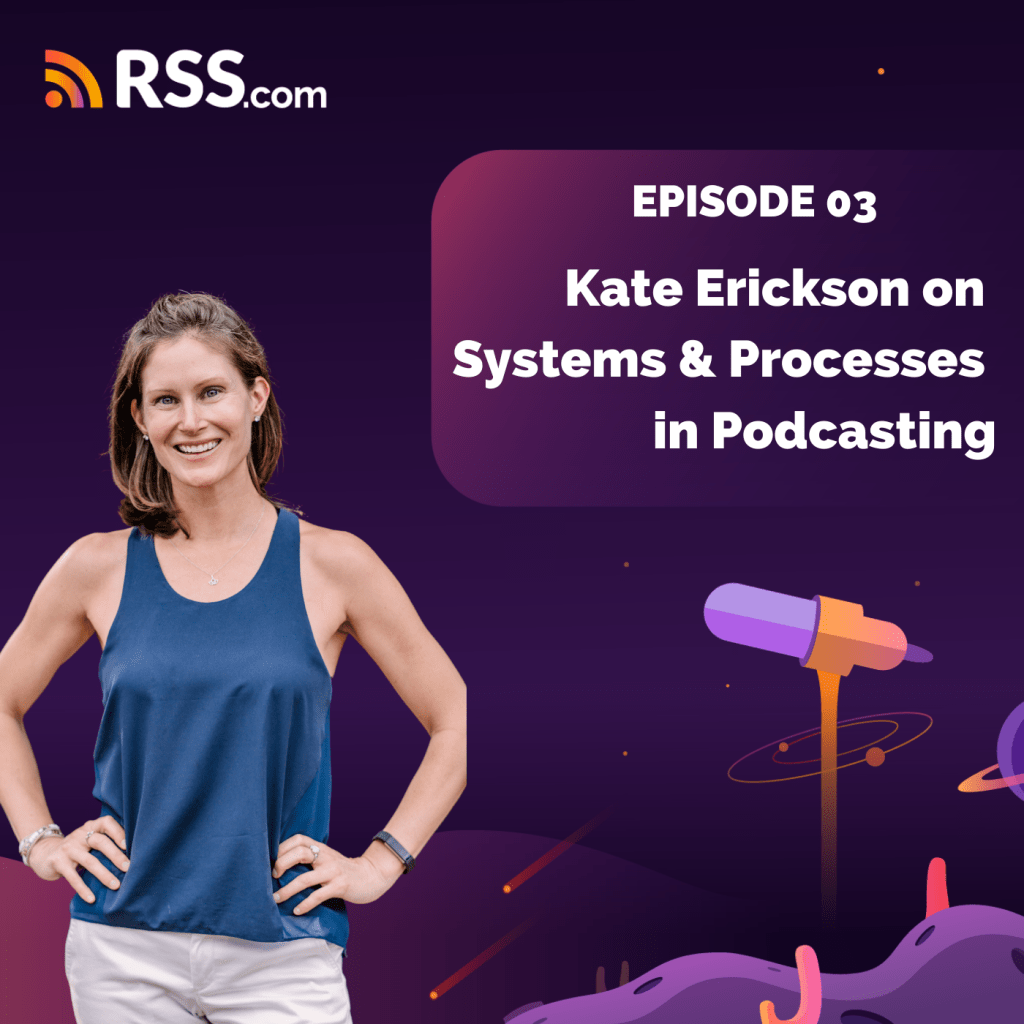
In this episode, Kate Erickson of Entrepreneurs on Fire talks about her processes for recurring podcasting tasks




